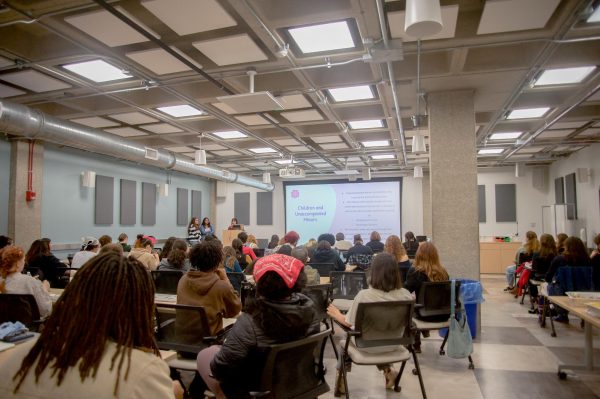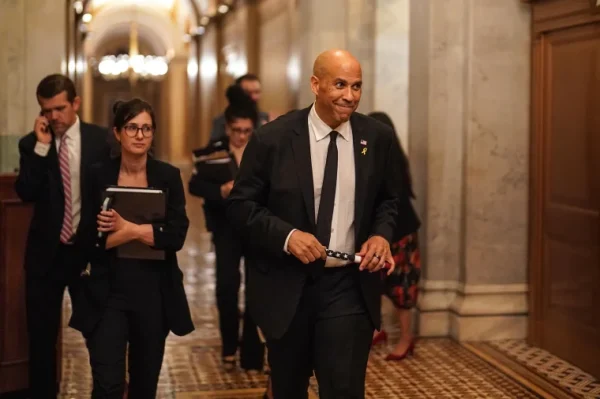Teaching Through Personal Trauma and a Pandemic
Now that I’ve finished two semesters of remote teaching — hopefully never to be repeated — I think it’s worth reflecting on the experience. The pandemic arrived during an already transitional period for me, both with respect to my teaching and also personally. About a decade ago, I experienced a personal trauma that has influenced much of my life over the subsequent years of my recovery. I see a number of parallels in the globally-shared trauma of the pandemic. Perhaps one of the most difficult aspects of these traumas — my personal one and the pandemic — is dealing with the loss of control over much of your life. Another hard one is the uncertainty regarding what’s happening and when things might return to “normal.”
Before my traumatic event, I considered myself to be someone in control and pretty successful in my job and personal life. And I felt like that was true because it’s my identity and the result of my hard work. However, everything changed with the trauma — things that had been easy for me became extremely difficult. I was tired all the time, but couldn’t sleep; I couldn’t control my emotions, becoming furious over little things, like stubbing a toe; and I was unhappy, lacking joy nearly all the time. I now know that these changes are symptoms of mental distress. Nothing had changed for me physically, but I was a disaster mentally. I didn’t understand how my life could have changed so much. It didn’t matter how hard I tried, I couldn’t gain control of the situation. It was only after I sought the guidance of a therapist that I began to make sense of what had happened to me, rebuild my sense of self, and develop coping strategies.
My key takeaway from my trauma recovery is extremely relevant to life during the pandemic — your mental well-being has an enormous influence on your ability to function in all the parts of your life. Though you may be physically healthy, sufficient mental stress can erupt in unexpected ways, making normal things impossible for you regardless of your effort. In addition, external factors, including the words or actions of other people, can push you past the tipping point mentally, impairing your ability to function in all contexts.
The pandemic arrived at a point when my own recovery was sufficiently far along that I’d begun to make changes in my interactions with others and especially in my teaching. It’s important for me to make space for students to be students but also people with thoughts and feelings that influence their functioning — regardless of whether these feelings derive from inside or outside the classroom. As a professor in a position of authority, it’s important that I help students see professors as people too, with hopes and fears, successes and failures. In class, I periodically share stories of my own experiences, like learning to play soccer at age 28 and rediscovering a passion for rock climbing just a few years ago — both situations where my initial skill level was quite abysmal. Academically, I sometimes share that in my undergraduate Evolution course, I failed the first exam, despite now being an evolutionary biologist! I think one of the most impactful changes I’ve made is in the way that I speak with students. I strive to be an active listener, which means listening to understand the speaker’s perspective, phrasing my responses non-judgmentally. After all, every student is plenty smart and capable of learning the material. I’m not here to judge my students, but rather to guide their learning, teaching from a growth mindset. Just this past spring, I took this a step further and adopted contract grading for my syllabus. In my class, students write up a contract detailing the grade they wish to earn and the responsibilities they intend to fulfill toward that grade. This includes due dates for assignments, expectations for attendance and participation, and consequences for lateness or absences. All assignments are completed to a Satisfactory level, so initial submissions may be revised until they are considered Satisfactory. I adopted contract grading to move students’ focus away from working for the grade and toward learning the material for its own sake and found it very successful in my spring course. I’m now planning to implement contract grading in my other courses as well.
Many of the changes that I’ve implemented were already “in the works” for me but they became more urgent as the pandemic increased stress levels to the point where a high fraction of people experienced some effects of trauma. This necessitated careful consideration of the context-specific issues that might arise in class. Pandemic-specific changes that I made included using asynchronous lecture recordings rather than live lectures, to aid students who may be in another time zone or have additional responsibilities while attending classes from home. Also, as someone with ADD, it’s pretty beneficial to be able to pause the recording or rewind if you are having trouble focusing. I also relaxed due dates and made sure to check in with students about the course workload, making adjustments as needed. It’s important to appreciate that when people are under great stress, they may present as defensive or upset for reasons that have nothing to do with you. It’s critical not to take someone’s phrasing personally — students do want to learn, even if the way they express that to you may not always sound like it. Being an active listener helps you focus on the other person, not your emotional response to what they are saying.
Remote teaching and learning came with a slew of new challenges for faculty, just as it did for students. Working from home can be isolating — sometimes students were my only social interaction — and for those with kids, the home environment was much more distracting while also bringing additional responsibilities and time requirements. I think the main classroom challenges for faculty revolved around learning new technologies and dealing with their limitations. For example, having discussions on Zoom is challenging given the time lags and inability to interrupt someone! The radical changes emerging from going remote really brought into focus the importance of making choices in support of my course goals. In several classes, I realized some assignments could be changed or simply removed without disrupting our progress. Sometimes, less is more.
The past year has been a lot for all of us. And though many of us are now vaccinated, we’re not really out of danger until we get the world vaccinated. We’re all still under quite a bit of stress and may not be able to fully employ our usual coping strategies — oh, how I miss rock climbing. However, I think that today we should recognize the resilience we’ve gained as a result of this immensely stressful experience. It may not have been pretty at times, and certainly not perfect, but we’re here. And, hopefully, we may have learned a thing or three along the way.



